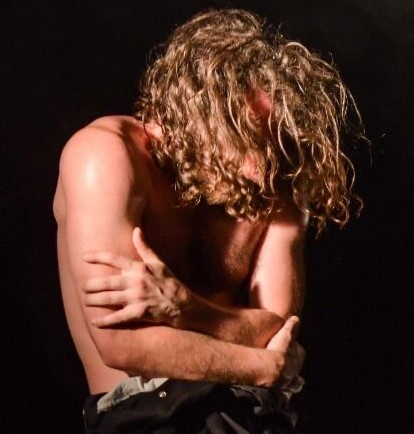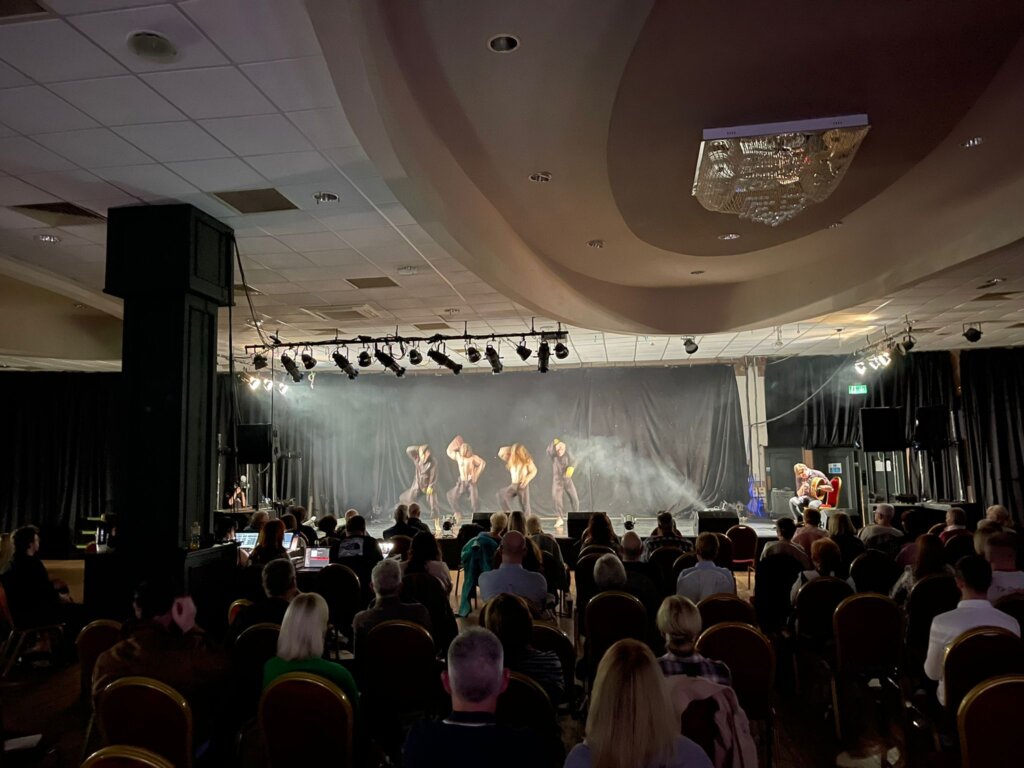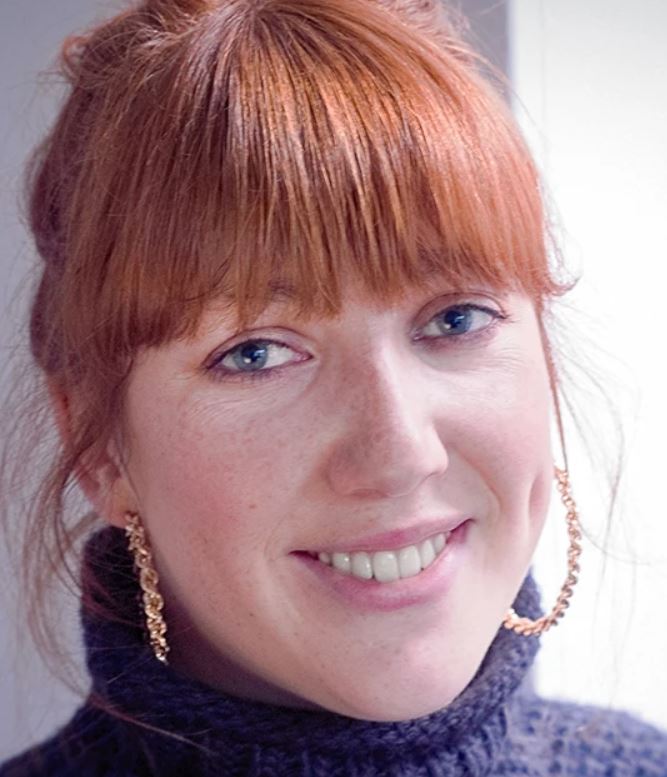The Irish premiere of a contemporary dance, inspired by the writings of Bobby Sands and resistance to oppression, was staged in the Devenish Complex in West Belfast on Wednesday, 22 September, sponsored by Féile an Phobail. Communities Minister Deirde Hargey was introduced by Féile director, Kevin Gamble. She spoke about the importance of the arts and public peformances and how the Corona Virus pandemic had devastated the arts community.
Comrades in the Dark received a standing ovation and prolonged applause from the audience, many of whom had travelled from outside Belfast for the event.
The idea for the dance was conceived by Caitlin Barnett, a choreographer from London.
The performance was described variously as ‘very emotional’, ‘thrilling’, ‘powerful’, ‘remarkable’, and incredibly fluid and full of energy and passion.
In an interview with the Andersonstown News Caitlin said that after watching Steve McQueen’s award-winning film Hunger she was inspired to mark the prison protest in a modern art form.
‘I watched the film and I had no idea. I didn’t know anything about Bobby Sands or the hunger strike and was quite struck by that. I was born in 1988 so it was before my time. I very quickly realised that I only had one half of the story and that there was a lot more.
‘I then found out about Bobby Sands’s poetry and that got the piece rolling. The performance focuses on the ideas and themes around the poetry rather than the hunger strikes as a narrative in themselves.’
She contacted Danny Morrison of the Bobby Sands Trust, visited West Belfast and in studios on Conway Mill recorded former prisoners, Rosaleen McCorley, Colm Scullion and surviving hunger striker Laurence McKeown reading from Bobby’s prose and poems, whose haunting voices have been integrated into the music composed by Jean Loup Pinson which intensifies the sombre imagined background of prison and brutal warders.
Jean combined ‘traditional influences from Irish music with a contemporary score and we then got a live Bodhrán player which added extra flourish and makes it more exciting.’
Caitlin says that the work also pays homage to her Irish roots:
‘I have Irish ancestry and it was a real discovery for me in terms of learning my Anglo-Irish history.’
Laurence McKeown spoke from the stage to thank Caitlin and the cast of dancers, sound and lighting technicians, and Féile an Phobail for its continuing commitment to the arts.
He said: ‘Just watching the energy and stamina and endurance on stage, the intimacy, the symbolism of it, half-naked bodies, the long hair, resembles the prison protest. The collaboration and the closeness is like the closeness between the comrades in the H-Blocks and Armagh Women’s Prison and the closeness of the prisoners to their family and friends and the closeness between Ireland and other struggling nations.
‘It is amazing the many ways there are of telling or expressing the story of the prison protest—and Caitlin’s is a great accomplishment. It’s amazing that this long after the hunger strike and the blanket protest, forty years, that people are still deeply interested and engaged with this moment in our history.
‘Tonight’s performance was about Bobby and his writings. Bobby was a Volunteer in Óglaigh na hÉireann, an MP. No one is particularly interested in what his military role was. What they’re interested in is the struggle as depicted in his prose and poetry, in his life and in his death. What he thought about the struggle, about freedom, imperialism, emigration, folklore, songs about Van Diemen’s Land, the poteen maker McIlhatton and a love song, A Sad Song For Susie.
‘Bobby took the role of Volunteer to a whole new level and his influence and legacy we witness tonight in this great performance of Comrades in the Dark.’






